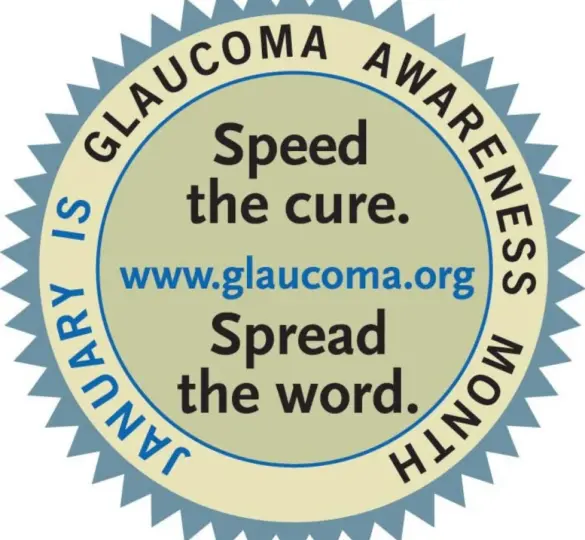January is Glaucoma Awareness Month
January is National Glaucoma Awareness Month, an important time to spread the word about this sight-stealing disease.

More than 4 million people in the United States have glaucoma and about 35% have related vision loss. Both total glaucoma and vision-affecting glaucoma vary by demographic factors.
Glaucoma is called “the sneak thief of sight” since there are no symptoms and once vision is lost, it’s permanent. As much as 40% of vision can be lost without a person noticing.
Glaucoma is the leading cause of irreversible blindness. Moreover, among African American and Latino populations, glaucoma is more prevalent. Glaucoma is 6 to 8 times more common in African Americans than Caucasians.
Over 80 million people worldwide have glaucoma. Experts estimate that half of them don’t know they have it. The World Health Organization estimates that 4.5 million people worldwide are blind due to glaucoma.
VIDEO: Dr. Constance Okeke discusses Glaucoma Awareness Month
Help Raise Awareness
Talk to your family about glaucoma.
In the United States, approximately 120,000 are blind from glaucoma, accounting for 9% to 12% of all cases of blindness. Here are some ways you can help raise awareness:
- Talk to friends and family about glaucoma. If you have glaucoma, don’t keep it a secret. Let your family members know.
- Refer a friend to our web site, glaucoma.org
- Request to have a free educational booklet sent to you or a friend.
- Get involved in your community through fundraisers, online information sessions or group discussions, etc.
Connect with Glaucoma Research Foundation on Facebook and follow us on Instagram for regular updates on glaucoma research, treatments, news and information. Share information about glaucoma with your friends and family.
What is Glaucoma?
Glaucoma is a group of eye diseases that gradually steal sight without warning. Although the most common forms primarily affect the middle-aged and the elderly, glaucoma can affect people of all ages.
Vision loss is caused by damage to the optic nerve. This nerve acts like an electric cable with over a million wires. It is responsible for carrying images from the eye to the brain.
There is no cure for glaucoma—yet. However, medication or surgery can slow or prevent further vision loss. The appropriate treatment depends upon the type of glaucoma among other factors. Early detection is vital to stopping the progress of the disease.
Types of Glaucoma
There are two main types of glaucoma: primary open-angle glaucoma (POAG), and angle-closure glaucoma. These are marked by an increase of intraocular pressure (IOP), or pressure inside the eye. When optic nerve damage has occurred despite a normal IOP, this is called normal tension glaucoma.
Secondary glaucoma refers to any case in which another disease causes or contributes to increased eye pressure, resulting in optic nerve damage and vision loss.
Regular Eye Exams are Important
Glaucoma is the second leading cause of blindness in the world, according to the World Health Organization. In the most common form, there are virtually no symptoms. Vision loss begins with peripheral or side vision, so if you have glaucoma, you may not notice anything until significant vision is lost.
The best way to protect your sight from glaucoma is to get a comprehensive eye examination. Then, if you have glaucoma, treatment can begin immediately.
Glaucoma is a leading cause of blindness among African-Americans. And among Hispanics in older age groups, the risk of glaucoma is nearly as high as that for African-Americans. Also, siblings of persons diagnosed with glaucoma have a significantly increased risk of having glaucoma.
Risk Factors
Are you at risk for glaucoma? Those at higher risk include people of African, Asian, and Hispanic descent. Other high-risk groups include: people over 60, family members of those already diagnosed, diabetics, and people who are severely nearsighted. Regular eye exams are especially important for those at higher risk for glaucoma, and may help to prevent unnecessary vision loss.
Who We Are
Glaucoma Research Foundation is a national non-profit organization dedicated to finding a cure for glaucoma. Founded in 1978 in San Francisco, we fund glaucoma research worldwide and empower a global community affected by the second leading cause of blindness.
Learn more about Glaucoma Research Foundation.
Last reviewed and updated November 25, 2025